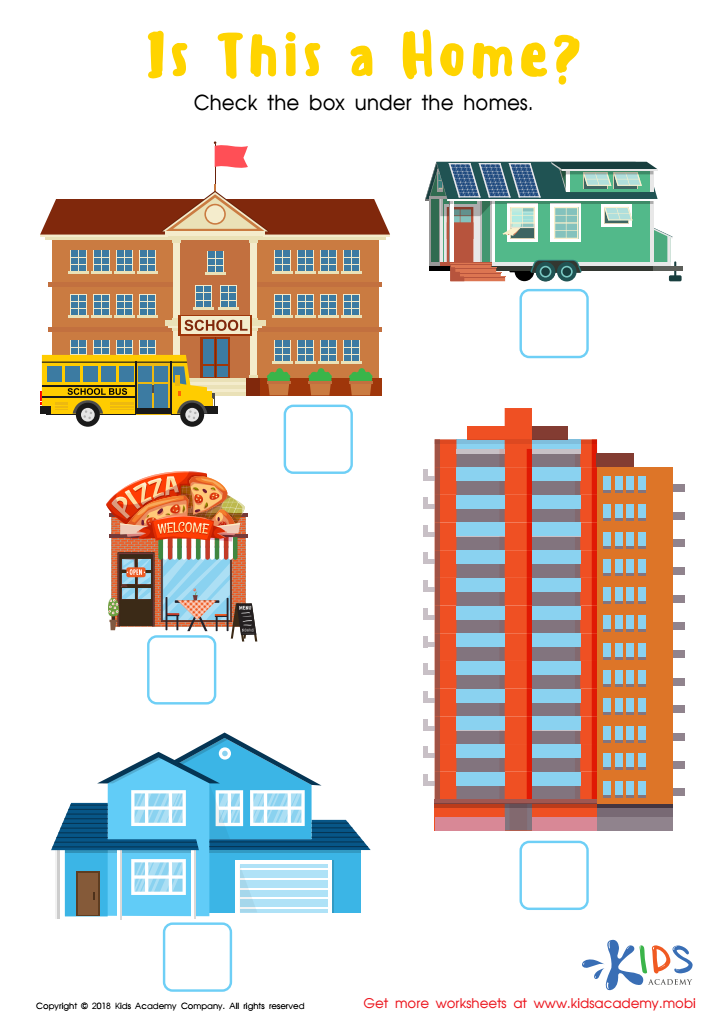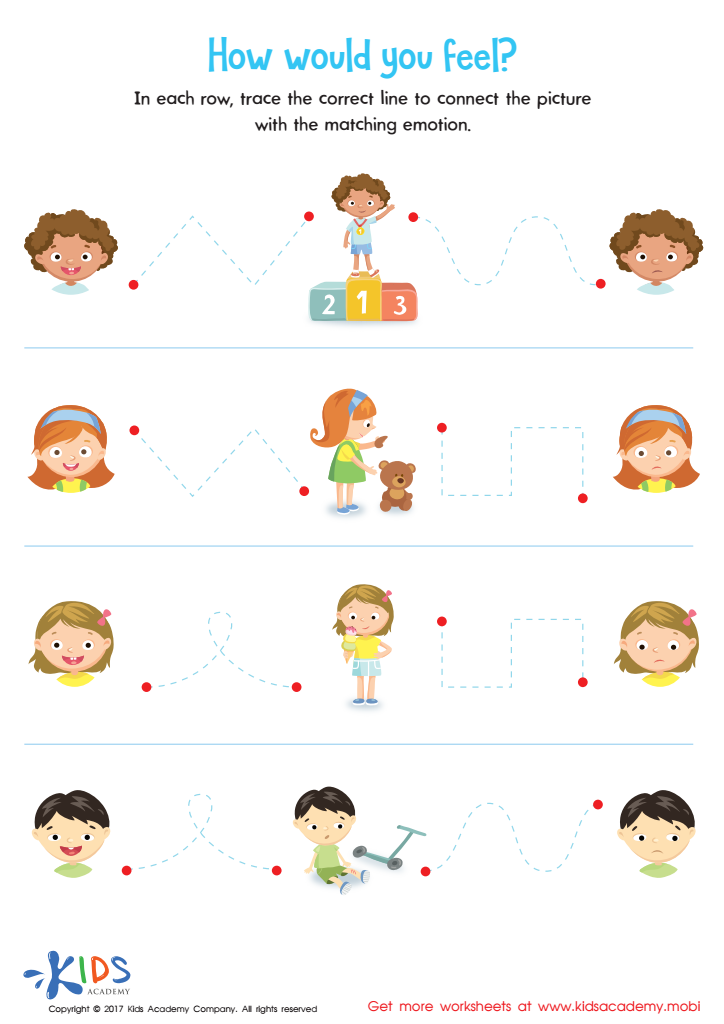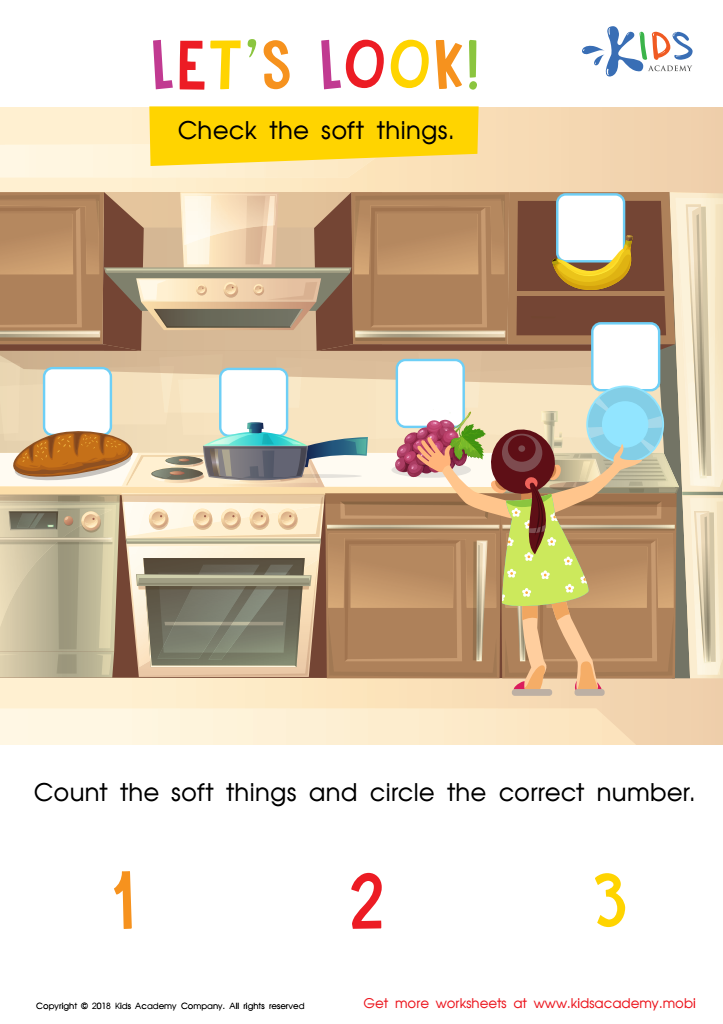Cognitive Development Community Worksheets for Ages 5-9
3 filtered results
-
From - To
Enhance your child's cognitive development with our expertly designed community worksheets for ages 5-9. These engaging activities stimulate critical thinking, problem-solving, and memory. Crafted to align with educational standards, our worksheets cover essential topics such as math, science, and social studies while focusing on real-world applications. Perfect for at-home learning or classroom use, each worksheet helps young learners develop key cognitive skills in a fun and interactive way. Discover a wealth of resources designed to build the foundational skills that children need to succeed academically and socially. Explore our collection today to give your child a head start in their learning journey.


Is this a Home? Worksheet


Feelings and Emotions Worksheet


Let's Look! Assessment Worksheet
Caring about the Cognitive Development Community for children ages 5-9 is crucial because this period represents a foundational stage in a child's intellectual and psychological growth. Between these ages, children's brains are incredibly pliable, and the skills they develop can significantly influence their future learning success and overall well-being.
From ages 5-9, children progress through critical phases of cognitive development, as described by theorists like Jean Piaget. They move from preoperational to concrete operational stages, where they begin to comprehend more complex ideas, understand cause and effect, and develop basic logic and reasoning skills. Involvement in a supportive Cognitive Development Community ensures that they are exposed to stimulating environments that can enhance these skills.
Interactive learning opportunities, enriched curriculums, and supportive social settings offered by such communities foster problem-solving abilities, creativity, and emotional intelligence. Furthermore, it helps identify and address any learning difficulties early on, enabling timely interventions.
Parents and teachers play key roles in this ecosystem, providing continuity between home and educational environments. Their active participation promotes a holistic approach to development, creating a collaborative network around the child. By caring about this community, adults invest in building more proficient, resilient, and adaptable individuals for the future. This thoughtful engagement lays a strong foundation for lifelong learning and achievement.
 Assign to My Students
Assign to My Students
















